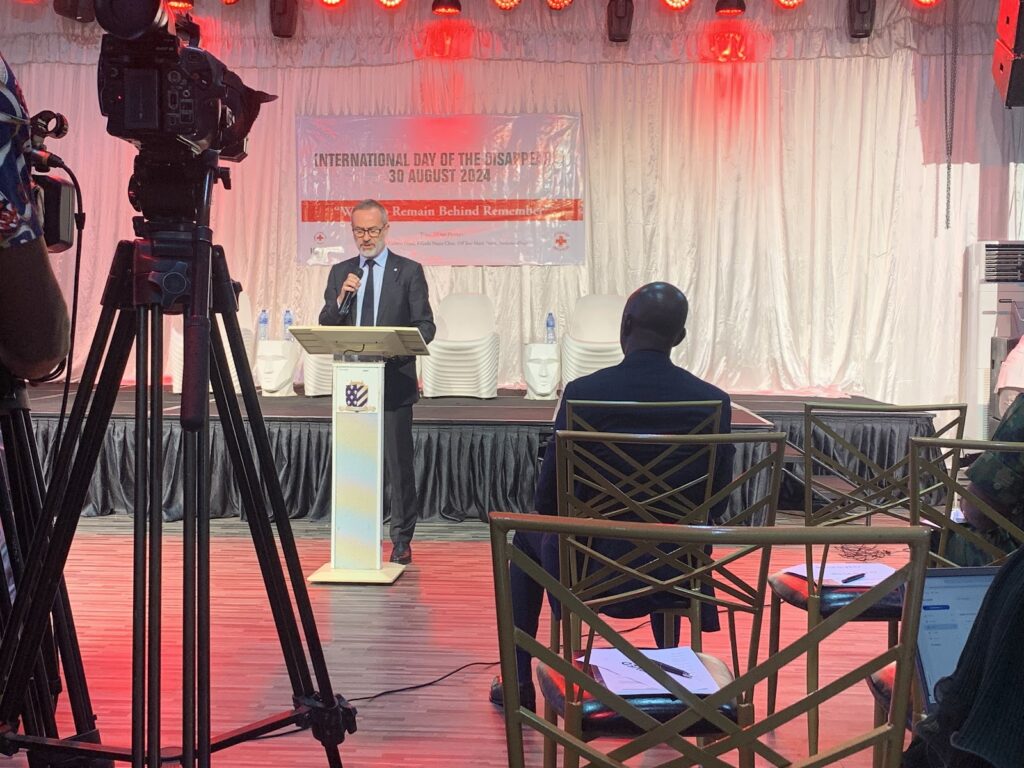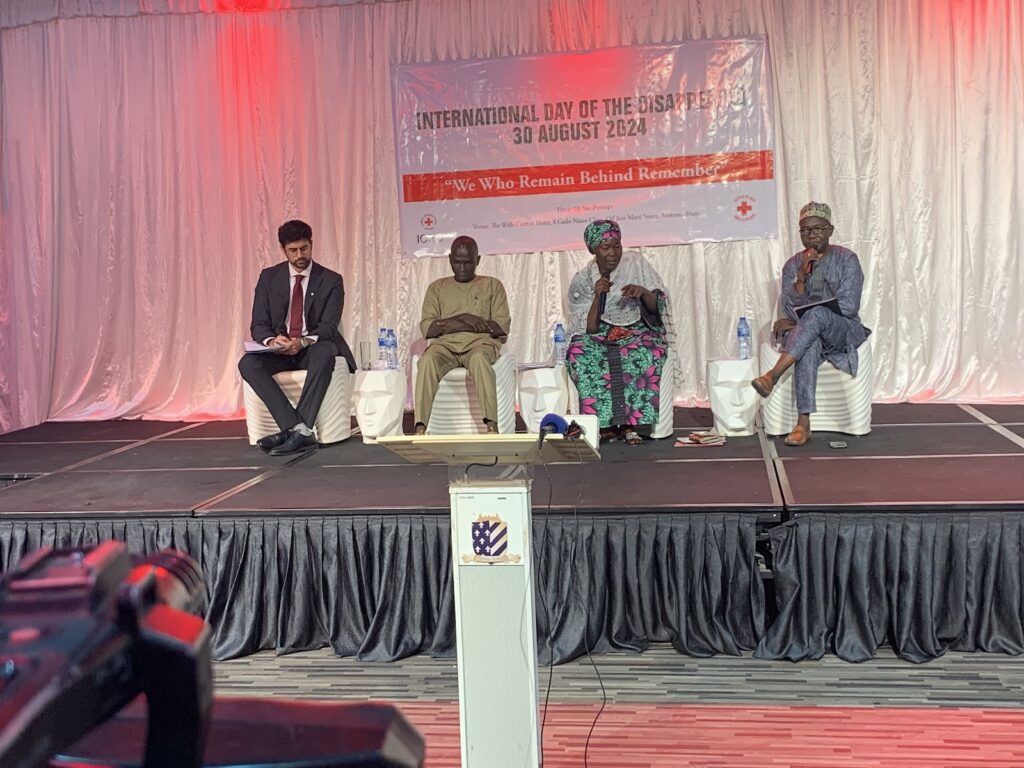Aug. 30 is set aside for the International Day of the Disappeared. This year, the International Committee of the Red Cross (ICRC) hosted a convention in Abuja, Nigeria’s federal capital territory, to commemorate the date.
In a statement released through its public relations unit in Geneva, Switzerland, today, ICRC revealed that the cases of missing persons in Africa registered with its organisation have risen by 75 per cent in five years. It was also noted that from the end of June, the continent had the highest missing persons caseload as well as the highest number of unaccompanied children and family reunifications.
“The issue of missing persons, including those forcibly disappeared, remains one of the most damaging and long-lasting humanitarian consequences of armed conflicts and other situations of violence for all loved ones, whether a waiting wife or a heartbroken son,” said Patrick Youssef, ICRC’s regional director for Africa.
HumAngle’s extensive work documenting cases of missing persons in Borno state in the northeastern region confirms this. Our dashboard documents about 3700 cases in ten local government areas in Borno state, a tiny fraction of the 25,000 documented cases of people who have gone missing in the northeastern region.
The International Day of the Disappeared, observed annually, is aimed at raising awareness of the plight of the missing, honouring their memories, and depicting the emotional distress of families, among other objectives. As ICRC marked the day today, members of the diplomatic corps graced the event, as well as officials of the Nigerian government and members of the Global Alliance of Missing Persons.
Yann Bonzon, Head of delegation at ICRC, in his opening remark, explained that for the families of missing persons, the disappearance of their loved one is not an incident of the past.
“Every single day without answers, they live and cope with the uncertainty of their family members,” he said.

Goodwill messages were delivered from the office of the minister of information and orientation, Mohammed Idris, and also the deputy speaker of the house of representative, Benjamin Kalu. Their representatives, while presenting their remarks, reiterated the government’s effort towards ensuring the disappeared are reunited with their families.
A panel discussion geared at presenting a personal account of the plight of families of missing persons was carried out. Kaltume Kachalla and Joshua Audu from Borno and Adamawa States, respectively, gave accounts of their missing loved ones. Both members of the ICRC program for families of missing persons, they talked about their journeys from solitude to solidarity with other families facing similar problems and shared their struggles and resilience for over a decade.

Kaltume’s sons went missing after an attack in her village in 2015. Joshua Audu lost contact with his brother-in-law in 2014 when they had to flee their village for safety.
While speaking about the disappearance of loved ones, Joshua recounted how his 19-year-old brother-in-law, Peter, vanished in 2014.
“The reason for the disappearance is as a result of armed conflict. I had the vision of having the biggest poultry farm in my local government in Madagali, and to support me in that dream was the younger brother of my wife, Peter.” Joshua said.
When armed men raided his community on Sept. 5, 2014, Joshua, his wife, and his less-than-a-year-old baby fled together. His older children fled with another group in another direction, while Peter fled with other relatives toward Mubi.
“I ended up in Yola while my other children were in Hong local government area, but there was no news of Peter,” he said.
Kaltume, who is from Kukawa in Borno State, is a victim of the Boko Haram insurgency in Borno. She revealed that her husband was slain in her presence one night while three of her boys were forcefully taken by the terrorists who invaded her community.
“They separated men from women and set the village ablaze. I kept running blindly, thinking that my children would follow me. I ran all through the night with only one child. Three days later, I met other women in a village, and we began to ask each other about the whereabouts of our children,” she narrated.
Kaltume travelled with the others to Maiduguri for shelter. There, she was informed that people had fled to Niger and Chad, so she went to an association to seek help. She got some money and travelled to the Niger Republic refugee camp to find her children but saw none of them after looking for eight days. She then followed a food truck to Chad, and after six days, she arrived in Chad but didn’t see her boys. She decided to head back to Maiduguri, where she sought shelter in an IDP camp.
It’s been almost a decade, and like Joshua, who has been looking for his brother-in-law, Kaltume doesn’t know the whereabouts of her sons.
Joshua and Kaltume explained that they are constantly going through trauma from the incidents that led to the disappearance of their loved ones.
Joshua has been on edge as his wife’s family has been asking for their son’s whereabouts. Kaltume misses her boys, who were the breadwinners before they were taken. Now, she must work alone to make ends meet.
Joshua and Kaltume belong to support groups in their communities where they interact with other people who have been grappling with the disappearance of their loved ones. They said the support groups have been giving them the courage to keep their hopes of reuniting with their loved ones alive.
Joshua calls on the government and stakeholders to come up with psychosocial programs that will cater for the families of missing persons because of the growing mental stress.
“I plead with international non-governmental organisations and civil societies to come up with intervention for families of missing persons in terms of advocacy because the hands working on people who have gone missing is very few,” he said.
Kwame Noel, an official of ICRC, gave the closing remarks. He appreciated the families of the missing persons who came from various states to share their experiences.
“We call on people and organisations to support the search because we are not talking about people who are dead but people who are missing,” Kwane stressed.
Support Our Journalism
There are millions of ordinary people affected by conflict in Africa whose stories are missing in the mainstream media. HumAngle is determined to tell those challenging and under-reported stories, hoping that the people impacted by these conflicts will find the safety and security they deserve.
To ensure that we continue to provide public service coverage, we have a small favour to ask you. We want you to be part of our journalistic endeavour by contributing a token to us.
Your donation will further promote a robust, free, and independent media.

